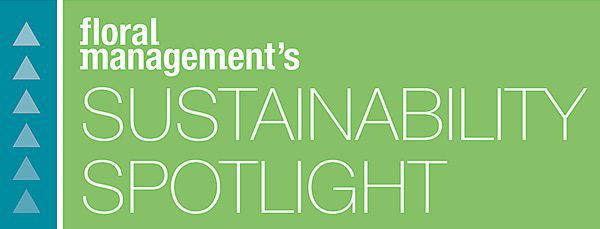![]() Health Care: Self-Employed and ACA Compliance
Health Care: Self-Employed and ACA Compliance
IMPORTANT: If you report at least one other employee on your federal income taxes, you are not considered self-employed for the purposes of the Affordable Care Act. Please return to the previous screen so that you may be directed to the appropriate guidance.
Under the Affordable Care Act (ACA), those who are self-employed without any employees are considered individuals for the purposes of requirements under the law.
class=”responsive-table”General Requirements ACA Plan Requirements Where to Obtain Coverageclass=”responsive-table”Exceptions Penalty for Failure to Obtain Coverage ACA Route Guidance for the Self-Employed
class=”responsive-table”
General Requirements
You are subject to the so-called “individual mandate” contained in the Affordable Care Act. This means that you are required to have health coverage that covers certain minimum essential benefits by January 1, 2014 or face a potential tax liability. You are also required to provide coverage for dependent children up to age 26 unless they receive coverage elsewhere.
class=”responsive-table”
Exceptions
There are some exceptions to the individual mandate. You may be exempt from the individual mandate if:
- You receive coverage elsewhere. Examples include:
- You are a dependent or receive coverage on someone else’s plan,
- You currently have a plan that has grandfathered status, or
- You participate in a government-sponsored program like Medicaid, Medicare, CHIP, etc.
- Other narrow exemptions apply, including:
- Months individuals are incarcerated,
- Months when individuals are not legally present in the United States,
- Qualified religious exemptions, or
- Cannot afford coverage because your required contribution for the lowest cost individual plan in the local Exchange exceeds eight percent of your household income.
ACA Plan Requirements
Unless you have a current grandfathered health plan or are covered elsewhere, you are required to obtain coverage that meets certain standards in order to avoid paying a tax penalty. Individuals must obtain a policy that covers “essential health benefits” for both themself and their dependent children that do not receive coverage elsewhere.
Penalty for Failure to Obtain Coverage
If you fail to obtain coverage for yourself and your dependents that meets ACA standards, you will become subject to a non-deductible excise tax penalty. The penalty from 2014-2016 is the greater of:
class=”responsive-table”2014
$95 per adult and $47.50 per child OR 1.0% of family income 2015
$325 per adult and $162.50 per child OR 2.0% of family income up to $975 2016
$695 per adult and $347.50 per child up to $2,085 OR 2.4% of family income
class=”responsive-table”
Where to Obtain Coverage
Should you choose to obtain coverage and avoid the non-deductible tax penalty, there are three options for you to obtain ACA-compliant coverage:
class=”responsive-table”OPTION 1
Through another family member’s plan (parent/spouse) OPTION 2
Directly from the existing marketplace through an insurer like Hortica OPTION 3
In the state-based Exchanges
class=”responsive-table”
ACA Route Guidance for the Self-Employed (How to choose what’s best for you.)
Below are some considerations for each option for obtaining ACA-compliant coverage:
class=”responsive-table”
OPTION 1 – Obtaining Coverage Through a Family Member’s Plan
PRO:
- This option might save some of the hassle of shopping for health insurance in either the open market or the state-based exchange.
- Being on the same plan may also allow your family to stay with the same doctor/medical practice that accepts certain coverage.
CON:
- The affordability requirements (9.5% of household income) of the ACA do not apply to plans offered by employers to an employee’s spouse and/or dependents. This may mean that purchasing coverage through another family member could be more expensive than purchasing coverage in the open market or through the state-based exchange.
OPTION 2 – Obtaining Coverage From the Existing Marketplace
PRO:
- Insurers that previously did not provide coverage due to a pre-existing condition are now unable to disqualify a participant on that basis.
- Because insurers will want to be competitive with plans offered in the state-based Exchanges, they may offer less expensive premiums and rates.
- An open market insurer may be able to design an ACA-compliant plan that is more suited to your individual health needs.
- Deductible as a business expense.
CON:
- Plans purchased in the open market are not eligible for potential tax credits and subsidies offered to eligible individuals that purchase coverage in the Exchange. This may mean a greater out-of-pocket expense.
OPTION 3 – Obtaining Coverage From the State-Based Exchange
PRO:
- Individuals that purchase coverage in the state-based Exchange may be eligible for premium tax credits and subsidies to purchase coverage, resulting in lower out-of-pocket costs.
- The Exchange will also offer coverage from a number of competitive insurers, further reducing the cost of premiums and rates.
- Deductible as a business expense.
CON:
- Eligibility for tax credits and subsidies for the purchase of coverage in the Exchange is limited by income.
- Tax credits and subsidies for purchasing coverage in the Exchange may eventually expire
- While all plans offered in the open market and Exchange will have to meet ACA standards, plans offered through the Exchange could be more basic and/or generic than those offered in the open market.
DISCLAIMER: SAF is not providing legal, tax, accounting or health benefits advice. The SAF Health Care Website* is a member benefit, provided for informational purposes only. Please consult with a qualified professional for appropriate advice.


